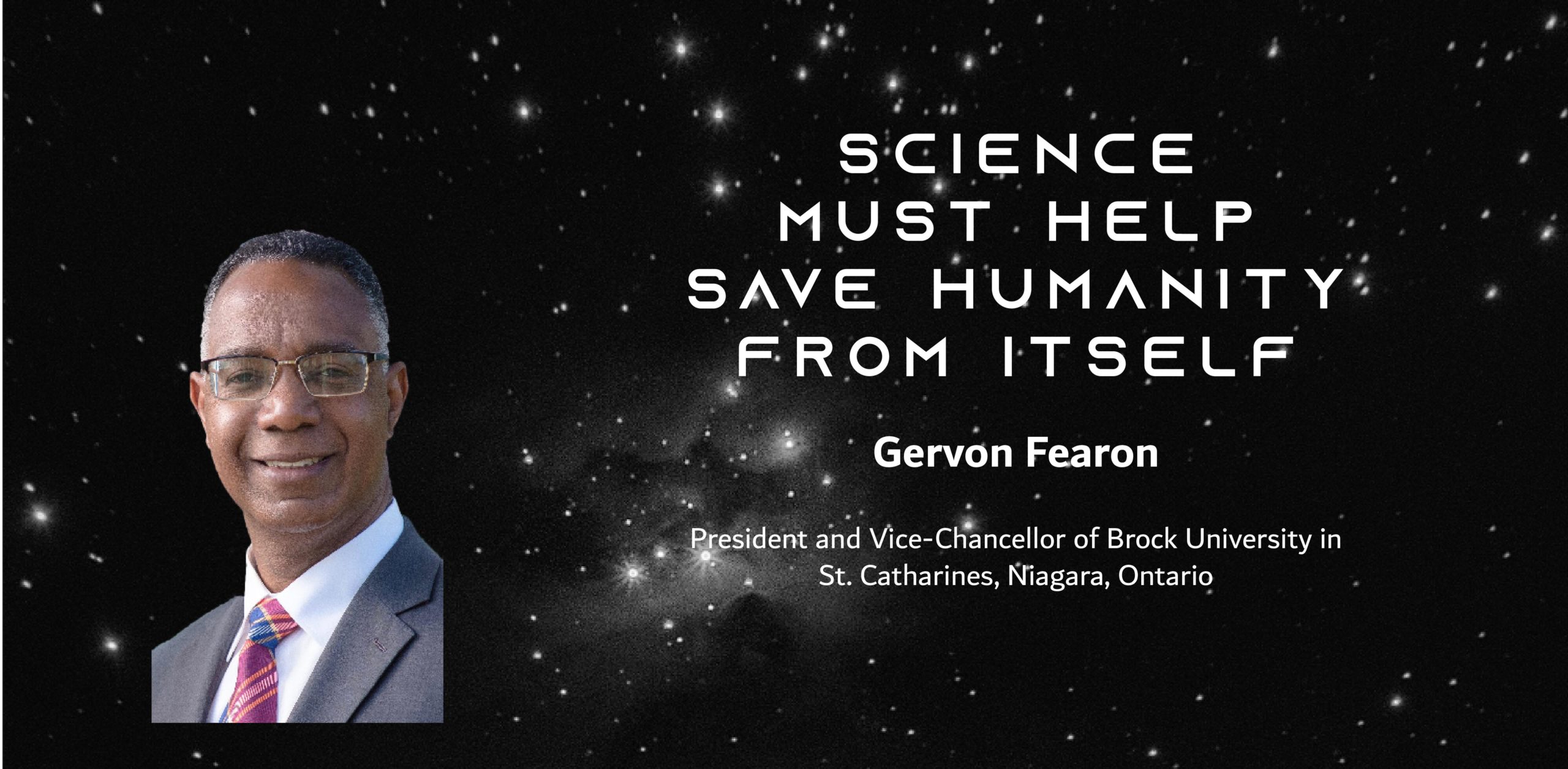Today, there is a tendency to view science and social change as being disconnected. This view is a relatively recent development in the long history of science, when we consider the evolution of the scientific method and thought dating back from the Egyptians and Greeks to more contemporary times with names such as Bacon, Lippershey, Galilei, and Newton.
Bacon’s inductive reasoning approach ushered hypothesis testing to progressing knowledge and understanding, and to this day defines the scientific methodology. Lippershey and Galilei set the foundation for observations, which led to a re-thinking of the Earth’s place in the solar system, and directly challenged the primacy of the church’s generally expressed view that the Earth was at the centre of the solar system.
It is evident that science has been a catalyst for social change and reconsideration of the social constructs of the time.
In 1969, humanity’s curiosity to experience existence beyond the scope of our planet saw the journey to the moon, and Neil Armstrong setting a human foot on that body. This achievement allowed humanity to look back at itself for the first time from another stellar body, and from a sufficient distance to see this place we call home, Earth. In the process, it also gifted us with the liberating sensation that comes from seeing racial, cultural or sociological differences between people washed away by the abstract connected form of our shared sphere that gives us all both life and protection.
The idea of a reflector or mirror telescope dates back to at least Newton. However, it was in the 1940s when the combination of ideas for a spaced-based mirror telescope would form the basis for what we now call the Hubble Telescope. Similarly, work that took place in the 1930s on the radio resulted in the establishment of radio telescopes.
Both the Hubble and radio telescopes have been instrumental in assisting humanity to see further in distance and also further back into the early history of the universe. Through these efforts, we have refined our understanding of the formation and evolution of the universe, from its earliest moments to forecasts that look out billions of years into the future.
In just the past 10 years, the development of the Laser Interferometer Gravitational-Wave Observatory (LIGO) has led us to the detection of gravity waves, and using these to make inferences about the universe. From the early telescopes of Lippershey and Galilei to LIGO, when humanity turned its efforts towards the horizon and stars, we have found out more about ourselves and our place in the universe than when we have looked at each other through the lens of what Freud (1918) called “narcissism of minor differences”.
Today, humanity prepares itself for the journey to Mars through both public and private enterprise endeavours. We look forward to the establishment of permanent bases that can sustain human life for extended periods of time in places where we have not previously existed. We have already seen signs that suggest there may be life elsewhere in our solar system (e.g., Venus or even Mars) and, with a certainty informed by any reasonable probability limit, we are not alone in the universe, but we are still relatively rare. We therefore have an obligation beyond ourselves to preserve and maintain life on planet Earth, as well as to consider the values that we will be emerging with from this earthly cocoon, and we will be taking out into our solar system and eventually beyond.
An examination of global affairs in 2020 highlights numerous challenges. We have multiple persistent conflicts; extremely divided and factional political discourse threatening state and even human governance and capacity; a pandemic that has exposed human tragedy and causality being more related to social disparity and marginalization than to any other pre-existing factor; justice systems in numerous democratic countries that cannot be called colour blind, while in other countries the resurgence of might-is-right and the interests of established or emergent oligarchs outweighing the welfare of the many; global warming being denied or ignored even as growing forest fires, extreme weather events and ocean rise threaten the most vulnerable; and the vulnerable who seek a haven from circumstance are instead corralled and branded, their humanity stripped by an unempathetic audience whose connectedness is often mediated by the 15-second news clip, just before the five minutes of commercials purporting the better life they crave.
Science has ignited our imagination to look beyond ourselves even as far as the universe. It has assisted us in realizing the possibilities of venturing to explore, learn, grow and exist beyond our home, Earth. Yet, the global affairs of 2020 suggest that science and, in particular, science in Canada must also join hands with the social sciences, humanities, and the arts to examine the question of what will be the values and proof-of-concept we exhibit here on Earth that will be left for future generations to inherit. We must consider if our conduct beyond our planet will not be riddled with the plight of narcissism of minor differences and the scars of unempathetic leaders and groups who prioritize their own interests over the trajectory of humanity being a multi-planet species whose values and conduct will shape not just our home, Earth, but our solar system and beyond.
It is insufficient for science today to solely focus on what it can make possible. It must also lend its voice to assist humanity in understanding the consequences of our choices, our conduct and our indifference.
I have full confidence that, one day, here on Earth we will receive a call from humans who have settled on Mars or elsewhere. Will they see humanity reflecting Martin Luther King’s speech – I have a dream – or an ever coercion into lower levels of some metaphoric Dante’s Inferno of global warming and heated social division?
It does not require Isaac Asimov’s psychohistory or quantum computing to predict the outcome of our current path. We have seen repeatedly that conflict interrupts human progress. Therefore, it will require scientists, and all of us, to articulate a change in our course of action, and a new destination, if we are hoping to get different results from our current path. I believe our Canadian scientists will join in with others to chart humanity’s shared future.
Humanity working together certainly provides the basis for optimism noting the competing alternative yields limited hope. Indeed, Canadian scientists help to shape our future and their work is imperative to us all.


